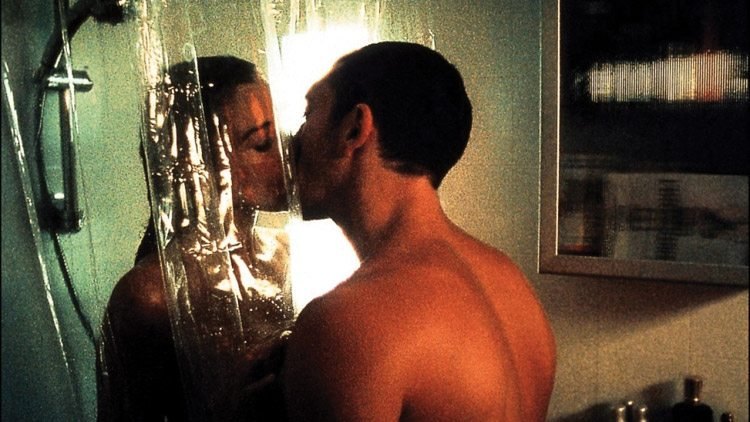We all love cinema for various reasons. Cinema, to me, should possess the power to affect you, and change the way you look at the most mundane of things and scenes in your life.
A good film may not necessarily be “liked” or praises unanimously because “liking” a certain piece of art is never really the point. The point is to trigger a conversation, to raise questions, to provoke you, and that, to me, is the hallmark of a great artist. Subjects that are bizarre and provocative have always intrigued me, and this is what got me into the cinematic worlds of Michael Haneke, Gaspar Noe, Lars Von Trier and Yorgos Lanthimos – the four modern pillars of Euro provocation. Gaspar Noe’s ‘Irreversible’ is a film that ripped me into shreds; one that forever changed the way I see the world; the way I look at people across the street, the subways, the roads, the noise, the vehicles. I can easily that ‘Irreversible’ is perhaps the closest a film can ever get to changing me.
However, to this day, it still remains one of the most controversial, divisive films ever made, with a number of critics dismissing it as torture porn. While it certainly isn’t the most subtle piece when it comes to violence and gore, it’s a film that makes smart use of its nauseating visuals and music. Any film that manages to get across a statement or an idea deserves to be seen. With all that said now, let’s break down certain aspects of the film:
The Concept of Spoiler
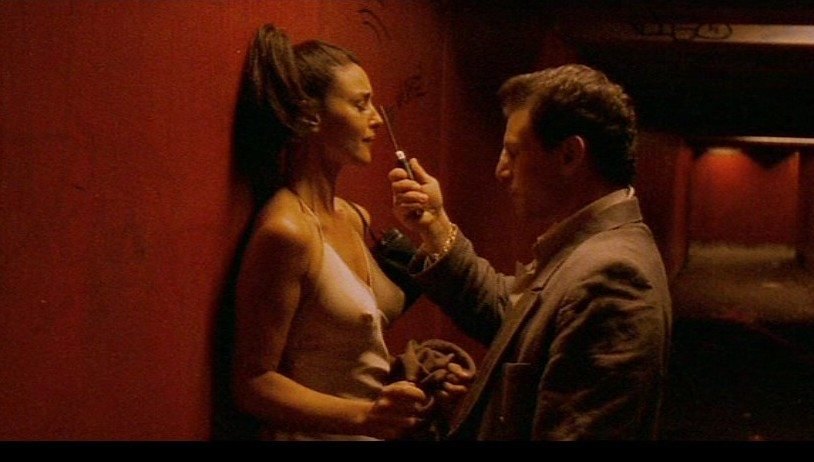
I’ve often debated the significance of the concept of “spoilers” in cinema. If a certain plot-point “spoils” a film for you, then there’s something wrong with the movie itself. A good piece of cinema can never be tied down to a mere twist in the story. There are several aspects that go into the making of a film: the aesthetics, style, vision, philosophy, and so on and so forth. These are elements that essentially elevate the experiential qualities of a film. ‘Irreversible’ is a classic example of a film toying with the idea of spoiler. It has a story that, on paper, seems like a run-of-the-mill rape revenge thriller. The story is pretty straightforward – a man sets out to seek revenge on the guy who raped his girlfriend. If one asked me to brief the story of the film, I possibly couldn’t, without giving away the spoiler. And frankly speaking, it doesn’t really matter. Should knowing the fact that Bellucci’s character will be raped and that her boyfriend will murder the wrong guy affect your experience of the film? It shouldn’t, and if it did, you’ve clearly failed to grasp the thematic depths of the film. This is not a film about its story, it’s a film about what its story tells you.
Violence and the Futility of Revenge
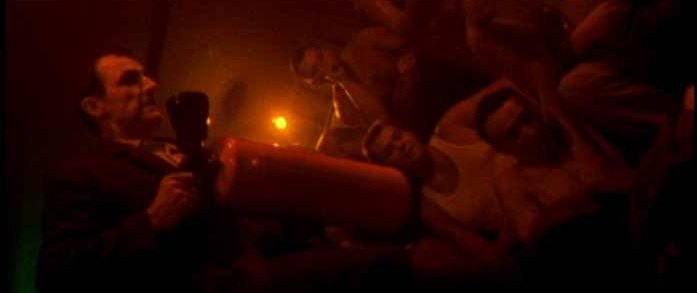
The great Austrian auteur Michael Haneke once said that on a visual level, there’s nothing that cinema cannot depict. How and what it chooses to depict defines the vision of the filmmaker. Provocauters like Gaspar Noe, Yorgos Lanthimos, Lars Von Trier and Haneke himself are known to disturb audience in sensational ways. But there are clear stylistic differences between all of them. As I said before, subtlety is not Noe’s forte. While this issue may seem more prominent in some of his other works, ‘Irreversible’ benefits greatly from it due to the raw emotional power of its story-line. Though some may argue the significance of the rectum scene, it must be understood in context here that Noe’s trying to make a point on the futility of the act of revenge. Television and cinema have, in many ways, desensitized us towards the act of violence. But Noe here uses the visual and atmospheric power of the film to put us right in the middle of the scene, and forces us to watch the most inhumane acts of violence and brutality.
The infamous subway rape scene was controversial due to its length but in my opinion, it truly conveys the horrors of rape. The camera freezes, and it just looks on, making us feel helpless, disgusted and terrified. And yet, not for a moment can we look away from it. Such is the scene’s raw impact. Everything in the film can be dismissed off as plain, mindless violence. Does it offer any solutions? No. What does it do? It makes you aware of the brutal realities existing outside our cozy shells. It’s ironic when you think of how a film replete with acts of gruesome violence could change you for the better.
A lot of critics have argued that the structure of the film makes it moral, in that by presenting the murders first, we realize that revenge is nothing more than just another act of violence. A number of films have tried to portray the devastating repercussions of revenge but most of them come off as preachy. ‘Irreversible’ is probably the only film that manages to get this message across in the most truthful, unpretentious way. The impulsive urge to inflict violence upon people who’ve hurt the ones we love is natural and human but the question is, what does it accomplish? Does it relieve our pain? Does it bring back people who’ve gone? Do they get to know that justice has been done? There’s literally nothing that we can do to make ourselves feel better about it. The irreversible nature of time and action shatter everything.
Time Destroys Everything
When has a tagline so beautifully defined a movie on every single level? We live every moment not knowing what lies ahead; we dream and desire without dreading the future. And it’s this poignant reality of human life that is encapsulated in this one line. The fact that the film ends with an elongated love making session between Alex and her lover is what makes the film so deeply tragic. By presenting the future before the past, Noe provides his audience the luxury of truth. It could be me and my lover in bed, and perhaps there’s someone out there watching us drowning in those fleeting moments of romantic ecstasy, knowing what will happen to us. But then as Ebert would say, “Life would be unlivable without the innocence of our ignorance.” There is absolutely nothing we can do about the things that will happen to us. And it’s this hopeless reality that Noe makes us aware of.
Atmosphere
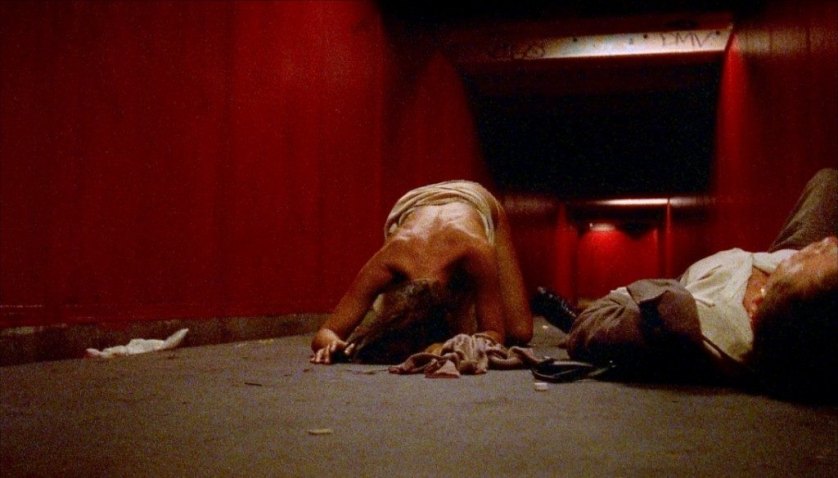
Cinematography doesn’t necessarily mean capturing gorgeous shots. The whole idea of cinematography is to define the movie entirely on a visual level. Good cinematography is almost always a product of the filmmaker’s vision. ‘Irreversible’ is a masterclass in building up atmosphere and tension purely using the visual power of the medium. There’s a sense of nauseating anger and disgust that pervade the film’s atmosphere. It’s almost like a nightmare we so desperately want to get out of, but can’t. Noe makes fantastic use of handheld camera.
The meandering visuals give it a distorted feel; like a dark memory ripped out of our subconscious. Benoit Debie’s use of lighting sets the tone of the film. Each sequence, shot in single takes, flows well with the narrative, and Noe makes brilliant use of his actors’ improvisational abilities. Set almost entirely at night, the movie depicts the sheer horrors of darkness. Noe uses the color of night to portray the horrifying realities of human life. In fact, he himself has stated that most people who’ve walked out of the film’s initial screening are the ones who’re terrified of nights. It’s kind of sad and scary when you think that the only scene that gives you a sense of hope is the dream sequence in the end, which is also the only scene shot during the day.
The Structure
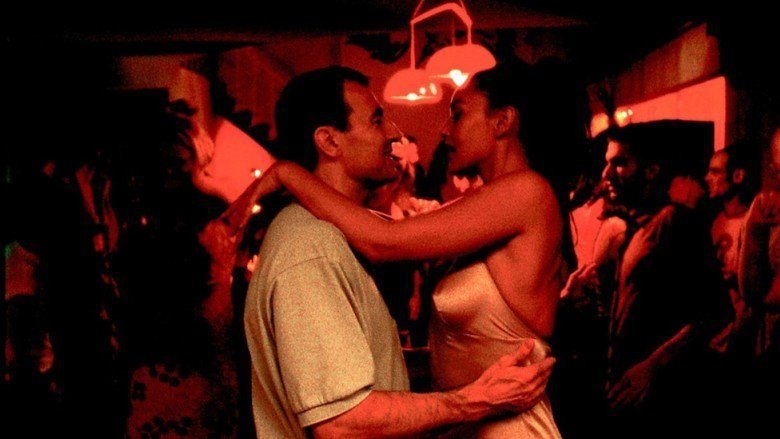
The most striking aspect of the film is its structure. For those who haven’t seen Noe’s debut film ‘I Stand Alone’ may not get what the opening sequence is all about. “The Butcher”, a middle-aged man, confesses to his friend that he was arrested for having sex with his daughter. The scene then shifts to Marcus being taken to a hospital from “The Rectum”, a gay nightclub. So far, we are unaware of the characters’ names, motives and needs. But we do know that our protagonist’s friend has managed to kill the man he so desperately wanted to seek revenge against, when he was attacked.
As Noe’s camera swirls and swirls to the violent corridors of truth, we see a gorgeous young woman walking in a subway. She comes across a man assaulting another woman who then escapes the scene. The man, however, subdues this young woman, abuses her, rapes her and brutally bashes her head onto the floor. The man is Tania, who the protagonist and his friend were searching for at the nightclub. But we realize that Tania wasn’t the person who got killed at the bar; it was his friend. We finally learn that this young woman named Alex is our protagonist’s girlfriend, who sees her being taken in an ambulance while returning from the party. As the scene further shifts back, we learn more about the dynamics of their relationship. We see them arguing at a party. Alex wants to go back but our protagonist Marcus, wants to stay back. Alex, however, decides to leave and since she couldn’t get a bus, takes the subway where she gets raped.
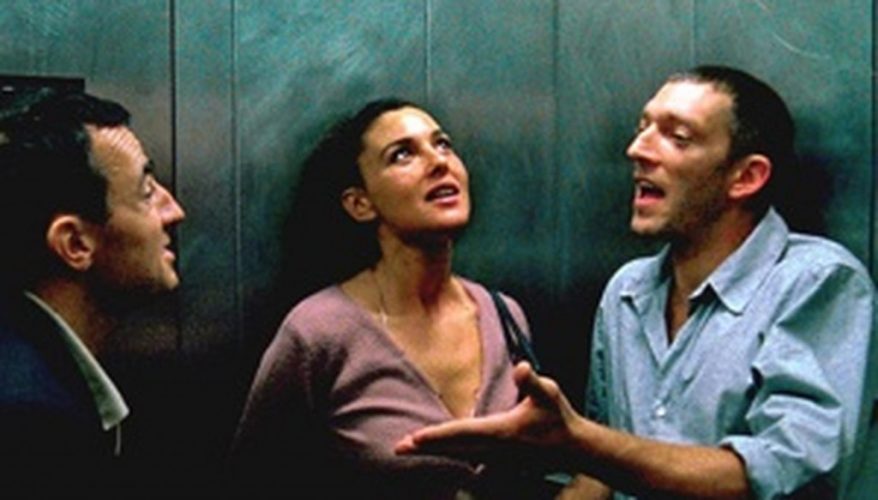
A number of critics have analysed and dissected the next sequence – the famous metro ride sequence wherein Alex, her former lover Pierre and Marcus are on their way to the party. They casually talk about sex and Alex reveals that she once dated Pierre and also implies Marcus is a better man in bed. What does this whole elongated conversation signify? Noe is not a subtle filmmaker. When Pierre says that Marcus “stole” Alex from him, it’s clear that Noe’s taking on the society’s objectification of women. How different could these men be from Tania? It’s a scene that holds mirror to the brutal realities of the society we live in. Alex clearly didn’t want to be part of that conversation but these two men, driven by the shameless urge to win a contest of male egos, dragged her onto it. This may not be a violent scene but it’s a smack on our faces, that says no woman, even with her lover, or husband or friend, can ever be safe in this world.
The Ending

A lot has been spoken about the film’s ambiguous ending. Like all great filmmakers, Noe chooses to leave a lot of questions unanswered, and this has sparked intense debate among cinephiles across the world. As Marcus gets ready for the party, Alex discovers she’s pregnant. The film then takes an abstract turn and we see Alex with her children on a beautiful field, playing and laughing. For a film that is notorious for its depiction of violence and profanity, it’s ironic that it ends with such a gorgeously crafted, profoundly poignant sequence. With a haunting score and evocative visuals, the scene truly displays Noe’s humanity as a filmmaker. It’s a scene that encapsulates the innocence, purity and spirit of a dream. Not only sad but it’s cruel when you think of how ironic fate can be.
The wicked nature of time destroys the simple dreams of a woman who just wants to be able to play with her children on a beautiful lawn. Men like Le Tenia exist in all parts of the world; they’ve all got the same face. But the true villain here is time; the time when Alex fought with Marcus; the time when Alex decided to step out of the party; the time when she decided to take the subway instead of boarding a bus. Time truly destroys everything. The ending is one that does complete justice to the film’s thematic and philosophical ambitions.
Final Word
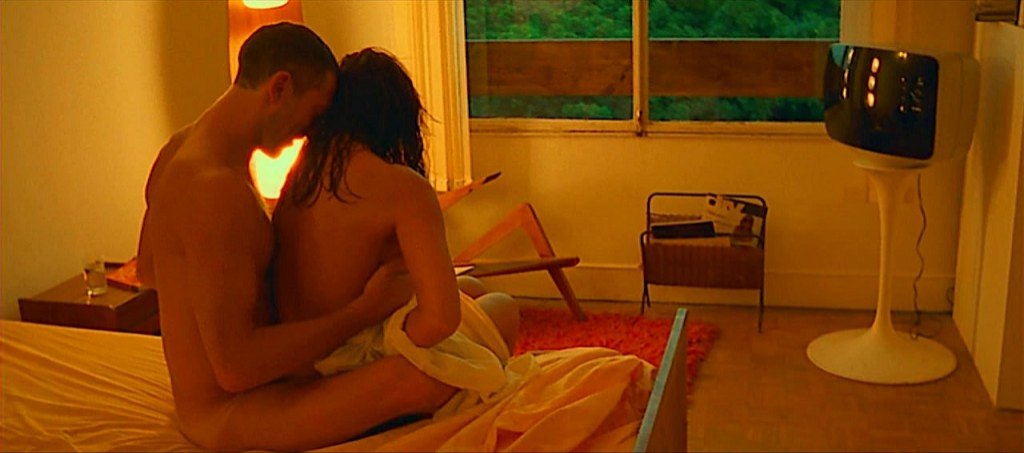
Gasper Noé is an artistic provocateur; his films are controversial but also deeply affecting and devastating. While many till this day still question the need to make a film like ‘Irreversible’, to me it is one of the most powerful cinematic experiences of the century, a movie that could irreparably scar you for life. Those who have accused it of gratuitous violence should remind themselves of its beautiful closing shots; the serenity and hope in those moments are testament to Noé’s thematic depth and vision.
I’ve often strongly believed that a film doesn’t necessarily need to have a message or a solution to the world’s problems. Cinema, or any other art form, is meant to provide a reflection of truth, which in turn offers space for contemplation. We see, hear and read about murders, rapes and many other kinds of violence in the papers, television and on the internet. But the truth is, the comfort of our cozy spaces in our homes alienate us from such devastating realities, and ‘Irreversible’ is a film that makes a genuine attempt to confront us with our worst fears.
Read More in Explainers: Cache | Don’t Breathe | Shutter Island


